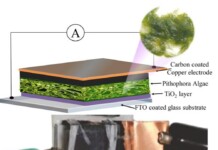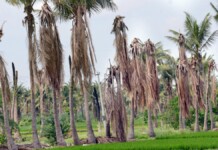Dr. Veerandra Heggade’s NGO proves how well-managed microfinance can make a big impact on sustainability outcomes at the grassroots level. There are several lessons here for ‘confused’ policy makers
Amidst widespread despondency all around because of failure of several public institutions and inept policy-making, India does spring a few surprises. An NGO promoted by Dr. Veerandra Heggade, Dharmadikari of temple-town Dharmasthala in Karnataka, recently won the coveted Ashden Golden award ‘for providing informed choices to the poor in the selection and adoption of renewable energy.’
SKDRDP (Shri Kshethra Dharmasthala Rural Development Project), started in 1982, can easily be a model NGO where the needs of the poor are involved and in any sector. While SKDRDP’s brief is dispensing microfinance, it has morphed itself into a full-service NGO dealing in agricultural, health, education, sanitation, renewable energy and even sustainable burial services. The good news is that the NGO is spreading its wings to all parts of Karnataka very soon – much needed in a state that has slipped from being progressive a decade ago to one of the backward states of India today.
The Dharmasthala temple town may well be the world’s most eco-friendly places. SKDRDP has shown how a local approach to solving ecological and livelihood issues have a far greater chance of succeeding than large, public-funded projects. It has also set the highest standard in how an NGO is managed. Here’s a glimpse of services the NGO offers across many parts of Dakshina Kannada district and a few taluks in some parts of Karnataka:
Sustainable Cremation
SKDRDP has so far given subsidies to 500 villages to set up Ferro Silicon Body Burning Chambers. Infosys Foundation too has stepped in to support setting up of hundreds of such chambers in North Karnataka. Most cremation grounds in villages are poorly managed and use 800 kilograms of firewood for burning a body. In contrast, SKDRDP’s chamber uses only 300 kgs. These chambers are making a significant contribution to village environment by protecting its forests, their ability to deal with issues related to death and also by making cremation affordable to the poor. If such chambers are put up all over India, especially on river banks, they can have a significant impact. It’s high time other state governments took note of it.
Power from streams
The dream of generating your own power from a nearby stream has indeed come true. SKDRDP has financed more than 200 micro turbines so far in Dakshina Kannada district which have perennial streams coming from the Western Ghats. Each generator provides sufficient energy to a household and costs about Rs. 15,000 to set up. In a country blessed with thousands of streams this can be one of the viable options.
Everyone has a hot water bath
Dharmastala’s Sri Manjunatha Temple receives an average of 10,000 devotees a day going up to 50,000 a day during festivals. Unlike in most popular temples, lunch is served here for free to everyone, everyday. The sheer magnitude of serving clean and nutritious lunch has become both an art and a science here. To make the process environment friendly, food is served on banana leaves and the cooking fuel is drawn from giant gobar (dung) gas plants.
There are 40 guest houses in Dharmastala with capacity to accommodate 20,000 people. All the guest houses have solar water heaters. Street lights are lit using solar panels.
Mr. L.H. Manjunath, executive director of the NGO, says Belathangadi taluk created a world record by installing most number of solar street lamps per square feet in a town.
How can such good work be spread to other districts and states? Can they be scaled? Mr. Manjunath is hopeful even though the prospect is daunting. He says: “We are a training institution, if NGOs are interested we can sponsor them; we can collaborate with other vendors as well. For example, we have been training masons for constructing gobar (dung) gas plants and solar home lighting systems. NGOs from north India have started coming to check us out. This is a good sign.”
Affordable micro-finance and targeted subsidies is at the heart of the success of all the above mentioned energy solutions. Even if a small proportion of the current mismanaged subsidy system is directed at solving local needs, there could a visible difference to the quality of rural life in India.
Farm pool
Indian property laws have resulted in the size of farmlands becoming smaller and smaller with each generation resulting in poor productivity and unemployment. Children of such households are forced to migrate to towns or are underemployed. SKDRDP is promoting the ‘Pragathibandhu model’ to address these issues.
This model involves forming self help groups (SHGs) of five to eight members in each group. Every member owns a few cents to two hectares of land. The field workers of SKDRDP train the SHGs on group dynamics, documentation, and handling of cash. They also help prepare a five-year cultivation plan based on the size and cropping pattern of each member. The farm plan involves following sustainable farming, mechanization, sustainable water supply and also ancillary activities such as home management, children’s education, house construction and marriage.
Compulsory sharing of cost and labor between the members of the group is the highlight of these SHGs. They are addressing the labor shortage problem that is daunting in rural India today. Over a period, SKDRDP has supported more than 170,000 SHG members become almost like a family. It has improved their financial and emotional security which every poor household aspire for.
Impressed immensely with SKDRDP’s work, Ashden judges said: “SKDRDP is a fantastic example of how ethicallymanaged microfinance can deliver sustainable energy to the poor, demonstrating that providing consumer loans for energy makes sound social, environmental, and economic sense.” Prince Charles gave away the award in London to Dr. Heggade. Perhaps the NGO deserves a bigger award in India so that the message of its good work can spread far and wide.










